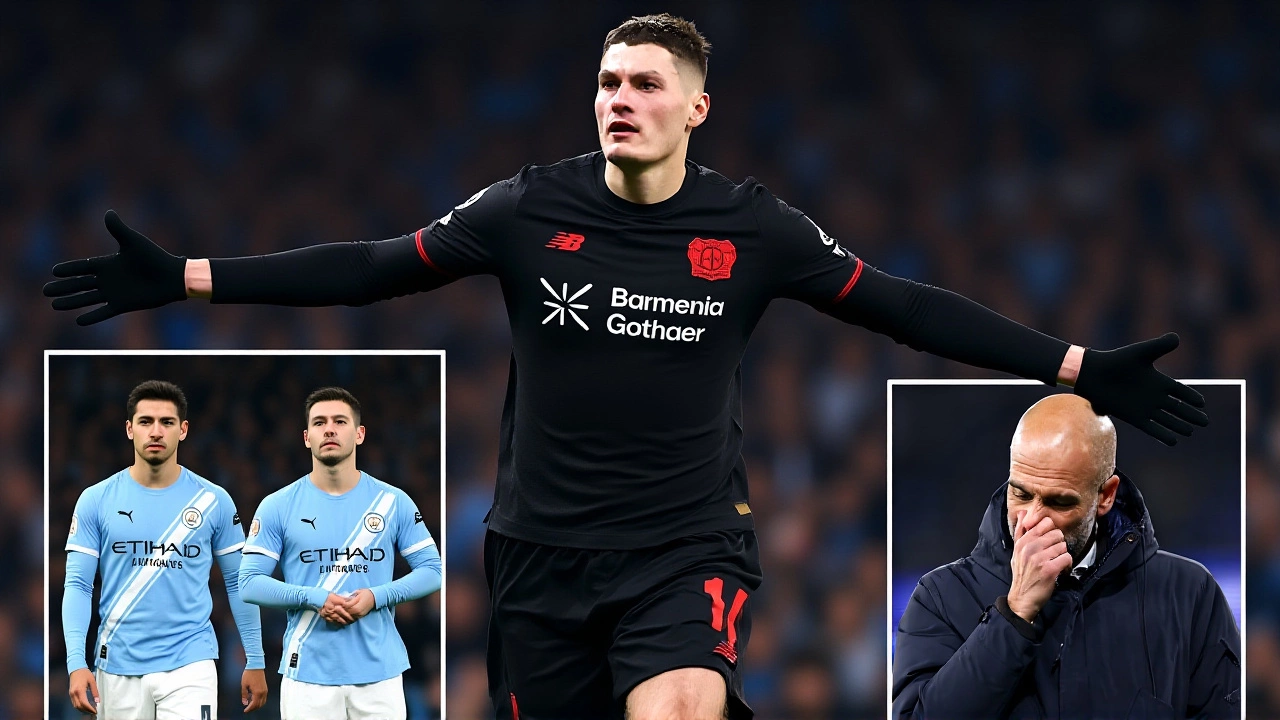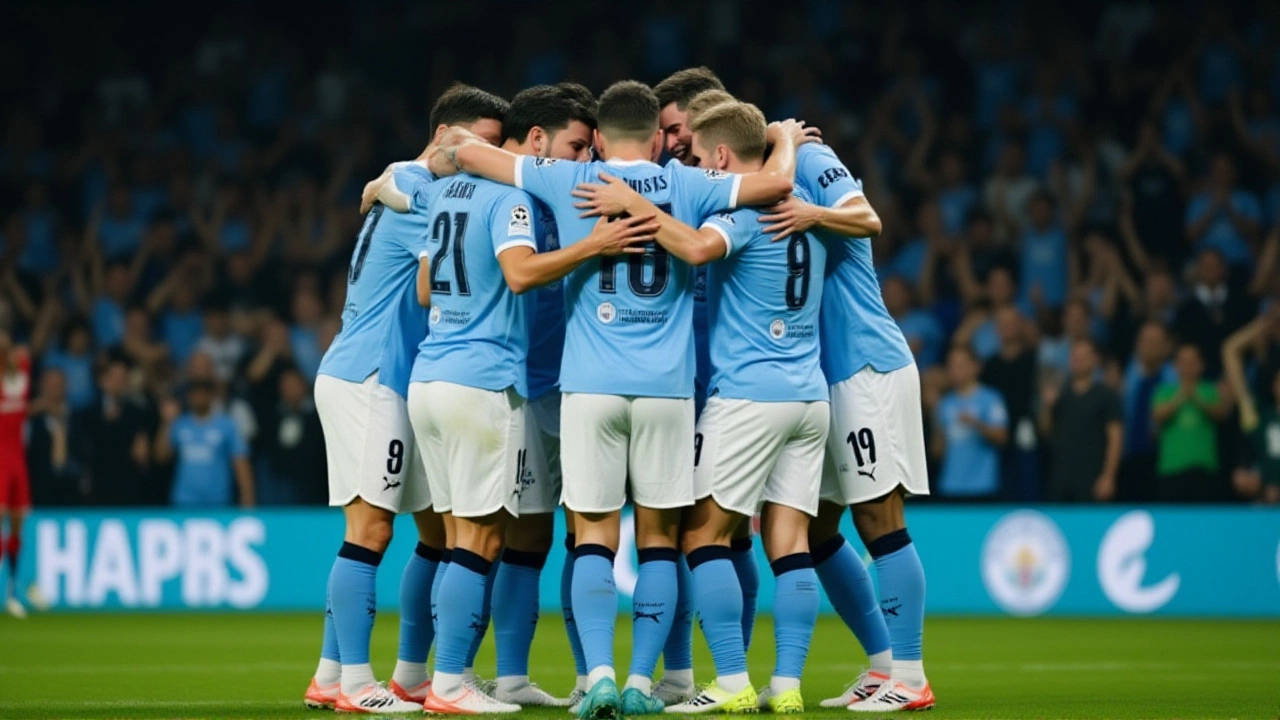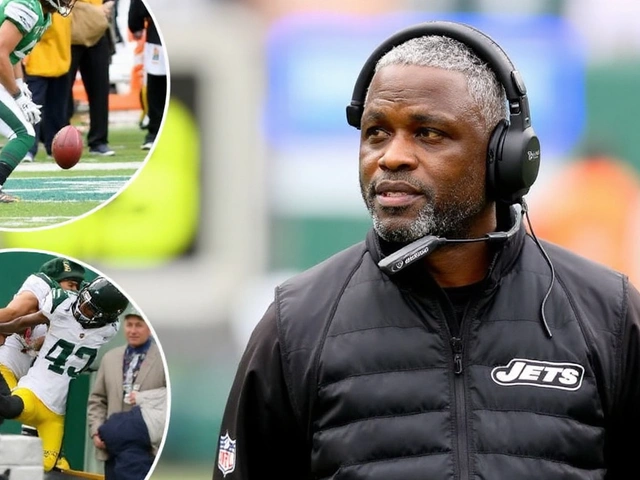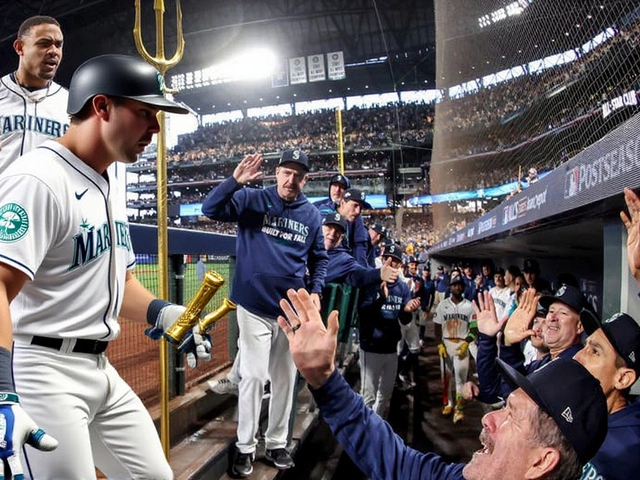When Manchester City lost 2-0 at home to Bayer 04 Leverkusen on Wednesday, November 26, 2025, it wasn’t just a surprise result—it was a seismic crack in their Champions League armor. The defeat, the first at the Etihad Stadium in the competition since 2018, came after Pep Guardiola made a staggering 10 changes to his starting XI. And he didn’t hide from it. "Too many changes," he admitted afterward. "Maybe it was too much... It was the first time in my life I’ve done it. And it was too much."
What Went Wrong at Etihad?
The goals came from Bayer 04 Leverkusen’s dynamic duo: Alejandro Grimaldo, the Spanish left-back who opened the scoring in the 34th minute with a curling finish, and Patrik Schick, whose clinical strike in the 67th minute sealed the deal. The visitors, already top of the Bundesliga, looked sharper, hungrier, and more cohesive than a Manchester City side that looked like a pre-season XI. Fans in the stands fell silent. The usual roar of the Etihad was replaced by murmurs of disbelief.
Guardiola’s decision to rotate so heavily wasn’t just bold—it was unprecedented. In his 13-year managerial career at the top level, he’d never fielded a team with more than seven changes for a Champions League fixture. But with City already guaranteed top spot in their group, and a Premier League clash with Leeds looming, he gambled on rest and rotation. The gamble backfired spectacularly.
Why Rotation Backfired in Europe
European competition doesn’t play by Premier League rules. Even in the new league phase format, where every game carries weight, teams still treat away matches in Manchester like finals. Bayer 04 Leverkusen came with a clear game plan: press high, exploit the gaps, and punish any hesitation. They did exactly that. City’s midfield, missing Phil Foden, Kevin De Bruyne, and Rodri, looked disjointed. The backline, reshuffled with academy players and fringe names, was caught out twice on set pieces.
"You can’t treat Champions League football like a warm-up," said Rob Dawson, ESPN’s senior European football writer, in his post-match analysis. "Guardiola wanted to give everyone minutes. But when you’re playing a team like Leverkusen—organized, athletic, and hungry—you need your best. Not your next best."
The Ripple Effect: Real Madrid, Playoffs, and Pressure Mounting
The fallout isn’t just about pride. It’s about survival. City now sit in 10th place in the Champions League league phase standings with three games left. Only the top eight avoid the playoff round. That means their next three matches—against FK Bodo/Glimt in Bodø, Galatasaray SK in Istanbul, and crucially, Real Madrid CF at the Santiago Bernabéu Stadium in December—are now must-wins.
"We still have three games," Guardiola said, his tone firm but weary. "I don’t anticipate what’s to happen. Now it’s don’t talk much, clean our heads, and go to Leeds."
That’s easier said than done. Last season, City finished 22nd in the league phase and were dumped into a playoff against Real Madrid. They survived—but barely. This year, they’re staring down the same road. A loss in Madrid could mean a repeat of last year’s nerve-wracking two-legged tie. A win? That could be enough to secure top-eight status.

Transfer Rumors and the Leverkusen Connection
Even as City reeled from defeat, another story unfolded. Multiple outlets, including OneFootball, reported that Manchester City, along with Liverpool Football Club and Real Madrid CF, are interested in signing a key Bayer 04 Leverkusen player in the 2025 transfer window. The identity remains undisclosed, but sources suggest it’s a 22-year-old central midfielder who started against City—and impressed. If City do move for him, it’ll be a poetic twist: signing the very player who helped expose their vulnerabilities.
What’s Next for Guardiola’s City?
Guardiola’s philosophy has always been about balance: rotating to keep players fresh, trusting depth, and believing in squad harmony. But this loss shows the limits of that ideal in elite European competition. The squad is deep, yes—but not all depth is equal. When the stakes are high, you need your best on the pitch.
City’s next two league games—against Leeds on Saturday and then Burnley—will be a test of character. Can they reset? Can they rediscover their rhythm? Or will this loss become the turning point that exposes deeper cracks?
For now, Guardiola owns it. And that’s rare. Most managers deflect blame. He didn’t. He said it plainly: "I was too nice. I wanted everyone involved. It didn’t work."
Frequently Asked Questions
Why did Guardiola make 10 changes in such a crucial match?
Guardiola cited squad rotation as a way to reward players who hadn’t started in recent games, especially with a Premier League fixture against Leeds coming up. He’s never made 10 changes in a Champions League match before, calling it a first in his career. But with City already guaranteed top spot in their group, he prioritized rest over risk—until the result forced him to rethink that logic.
What does this loss mean for Manchester City’s Champions League chances?
City now sit in 10th place with three games left. Only the top eight avoid the playoff round, meaning their matches against FK Bodo/Glimt, Galatasaray, and Real Madrid are now must-win games. A loss to Real Madrid in December could force them into a two-legged playoff, a scenario they barely survived last season after finishing 22nd in the league phase.
Is this loss a sign of deeper problems in the squad?
Yes. The performance exposed a lack of depth in central midfield and defensive organization. Players like Mateo Kovacic and Nathan Aké were out of position, and the absence of Rodri and De Bruyne was glaring. While Guardiola trusts his squad, this match proved that not all rotation is equal—especially in high-stakes European games where tactical discipline matters more than ever.
Could this loss affect Manchester City’s transfer plans?
Possibly. Reports suggest City, Liverpool, and Real Madrid are all interested in a young Bayer Leverkusen midfielder who started against City. If they sign him, it could be a direct response to the midfield vulnerabilities exposed in this match. The player’s performance may have been the final push City needed to accelerate their recruitment.
How does this compare to previous Champions League failures by Manchester City?
Unlike past collapses—like the 2021 final loss to Chelsea or the 2023 quarterfinal exit to Real Madrid—this defeat came at home, against a team City were expected to beat. It’s not about quality gaps this time; it’s about mindset. Guardiola’s rotation gamble mirrors his 2020 loss to Lyon, where he also rested key players. But the stakes are higher now, and the margin for error is thinner.
What’s the next big test for Manchester City?
The December fixture against Real Madrid CF at the Santiago Bernabéu Stadium is the defining moment. Win, and City can breathe easy. Lose, and they’ll be forced into a playoff they’ve already survived once this decade. That’s the pressure Guardiola now carries—and the one he can’t afford to hide from.











